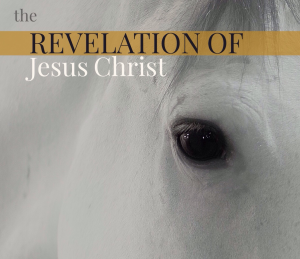Chapter 9 starts with a reminder that people of Israel are to continue the celebration of Passover, an annual reminder that YHWH had delivered them out from the Egyptians. This is an important reminder as they are just about to set out, once again, under God’s personal escort, to a land that will fulfill what He promised them as well as what He promised Abraham. In reaction to God’s instruction, Moses reminds the people and they do it. All is well.
But a problem arises. The Passover is to be kept on the 14th day of the first month (remember the calendar got re-oriented around when YHWH delivered them from Egypt so, in effect, every new year is on the anniversary of that event). Anyway, it so happens there are some fellas who are unclean on the 14th (the text tells us they had become unclean through touching a dead body). They are in a quandary. YHWH has asked everyone to celebrate Passover yet the people recognize that to do so in an unclean manner brings risk. So, they ask Moses to check with the Lord on what they should do. Off the bat, this gives us a pretty clear sense on the nature of the laws that YHWH has passed down. They are not rigid or unreasonable, they are principled. Where nuance is required, the people will petition God for clarification. As the people start to misbehave and push the boundaries, YHWH will provide additional clarification to keep them on the correct path.
YHWH makes an accommodation for this situation by saying that anyone who is unclean from touching a dead body, or who is away on a long journey, during the time of Passover shall still do it, just on the 14th of the next month. They have to follow all the same procedures (already covered in Exodus 12), just a month later. All is well. In light of this addendum, however, God reiterates that everyone is to participate in the Passover and that, if anyone who is clean and able to do so does not, they shall be cut off from their people. Most commentators comprehend the phrase “cut off” to mean immediate death and potentially even separation from their people in the life to come (although that bit seems a stretch given that the concept of an eternal life is not explicitly found in the Torah).
YHWH also invites any stranger or traveler who is around to take part in the Passover festivities. They’re not required, but if they’re interested and want to do it, they need to do it in the same way as the Israelites (meaning there are no alternative celebration instructions for sojourners in the land, everyone does it the same way).
The chapter ends with a bit of poetry as the new journey begins. The people, in fits and starts, followed YHWH as He lead them through the wilderness to Mt. Sinai. Here they camped for a year to receive words and laws from God on what it looks like to live as His people with His presence among them. Now, they are about to set out again and they will be lead in the same way. When the presence of YHWH hovers over the tabernacle, they stay. When it goes, they go. Cloud by day, fire by night. And we’re told over and over again that they obeyed, following God’s command. Unfortunately, this obedience will not last long.

